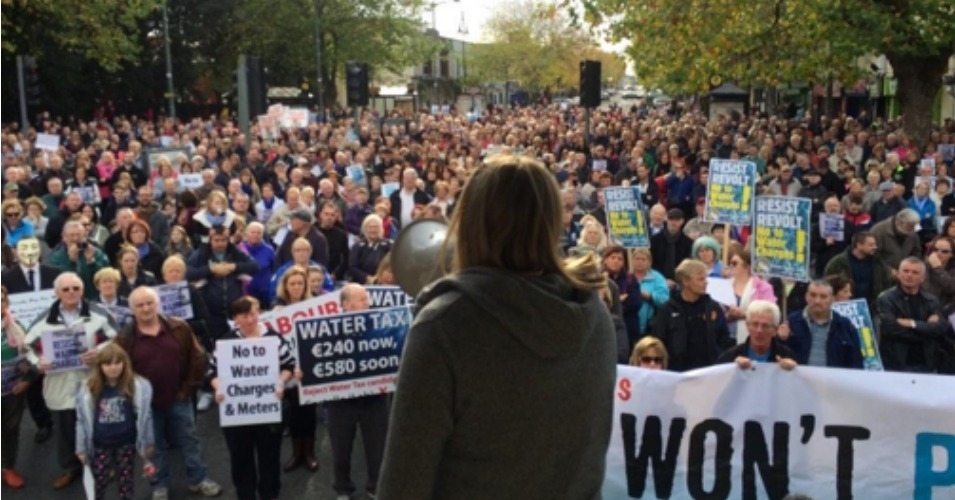
I’m not personally against the idea of water charges, which many countries more egalitarian than Ireland manage with just fine, and which can be progressive and environmentalist if implemented in the right way (which the proposed Irish version definitely isn’t). And it still would have made more sense to me if this level of outrage had been directed explicitly against the many more egregious previous examples of austerity and injustice of the last few years and the fact that the system that caused it hasn’t been corrected. But that’s just my view, as one person, and that’s self-evidently not what really matters when it comes to people power.
The disruptive and aggressive tactics of a very small number of protesters that has been highlighted in the media should also not detract from the nature and meaning of the protests as a whole. The vast majority of protesters are peaceful and, to a degree that is not being acknowledged nearly enough in coverage of the protests, are very often ordinary people who have never been politically engaged in this way before. That is in many ways one of the most striking aspects of the protests, arguably much more significant in from a longer-term perspective than the particular current details surrounding the issue of water charges itself.
Another interesting aspect is the extent of the commentary from protesters and supporters of the protests is almost as a rule seem to reference issues that do not at all seem directly rated to the question of Irish Water at all – referring unemployment, frustration at years of austerity, broken promises by the government, political cronyism and a general sense alienation from the political system.
Water charges have tapped into accumulated frustration at years of austerity, recession, an economic crisis that showed blatant inequalities in terms of who caused it and who suffered from it and a political establishment that has been utterly unresponsive and ineffective at answering the grievances that have arisen from such glaring failures and injustices.
All of this means that dismissals of the protests that focus solely on the minutiae of the government’s proposals on water charges, or the even notion of water charges itself, or on an ostensibly leftist argument that this is the “wrong” thing to be protesting about as it does not conform to certain social-democratic ideas about what progressive politics should focus on, are rather missing the point.
The flaws in this perspective ironically bear an affinity to those of the Trotskyist academic Perry Anderson. Anderson has argued for years that the labour movement in Britain has been hindered and held back ideologically by a political culture that developed in the “wrong” way, as compared to the evolutionary ideal-type of France after the French Revolution, and consequently was not guided by properly progressive or sophisticated ideologies, unlike the more Marxist-inspired labour movement of continental Europe. Anderson’s fellow left-wing historian, E.P. Thompson, passionately refuted this argument. People, Thompson said, have made and continue to make their own history and their own ideology through a process of engagement with the political, social and economic pressure around them in a way that cannot and should not be pre-ordained or ascribed particular “correct” path. To simply fret at the failure of popular movements to fit with the “tidy Platonism” of one’s own preferred preconceptions, or to consequently dismiss the popular politics that may emerge as somehow unworthy or inadequate rather than at least trying to engage with it on its own terms, is to fail to appreciate how history and political mobilisation actually works. At a time when growing numbers of people are increasingly detached or alienated from established politics and pre-existing political ideas, Thompson’s arguments are arguably even more than when he first made them fifty years ago.
The enormous disillusionment with Ireland’s political and economic system and desire for real change felt by huge numbers of people is impossible to ignore at this stage or to dismiss as nothing unusual – or at least it should be. And that has the potential, if only the potential, a have a real positive and radical impact on the country’s future.
Photo: Right2WaterIreland






